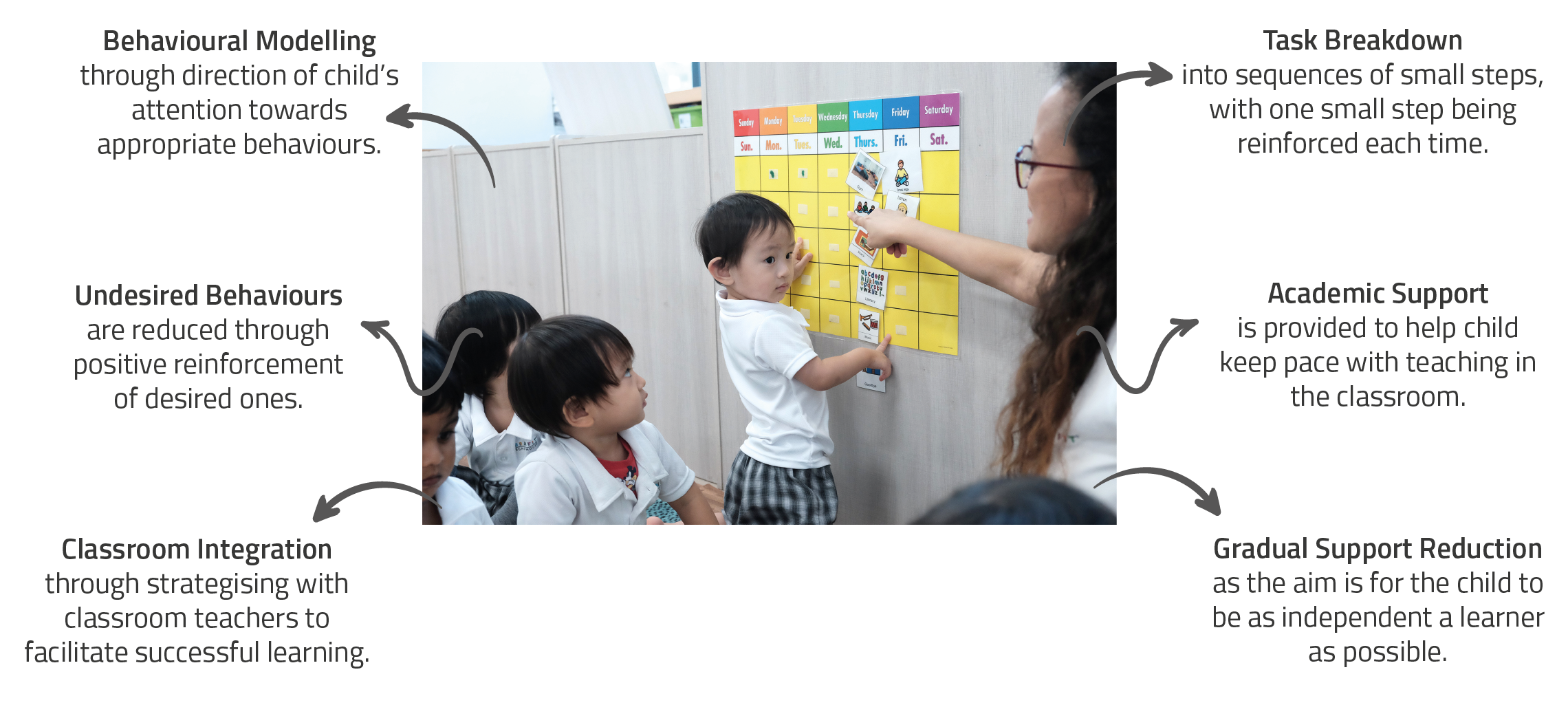
Early Intervention
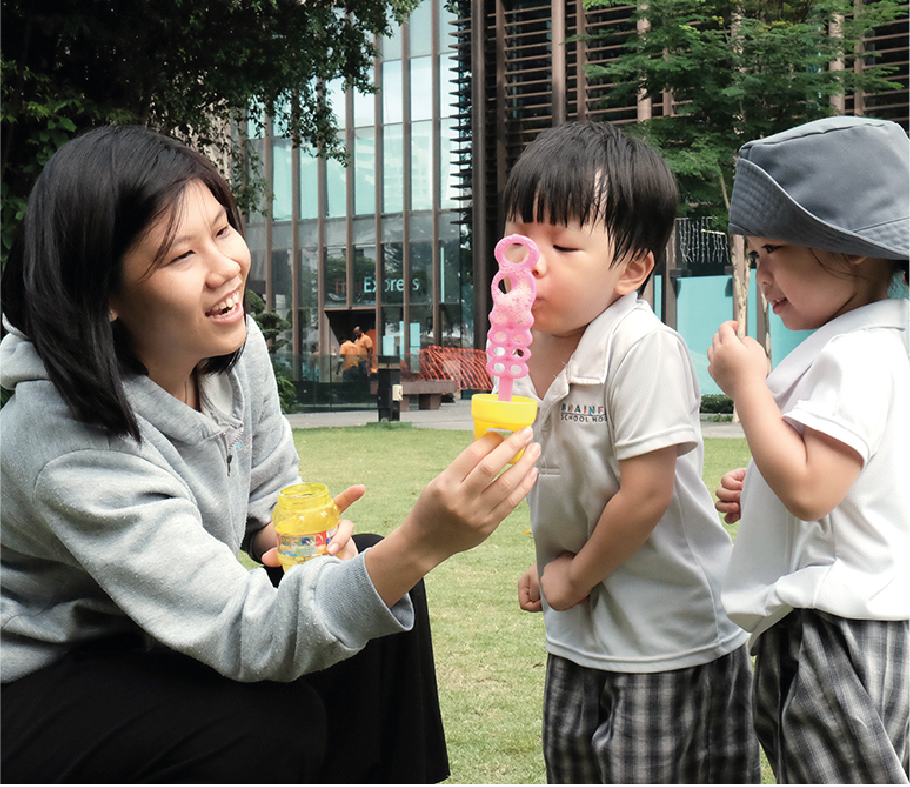
CLOSING THE LEARNING GAP
Children with learning challenges have been shown to perform better when they’re given the opportunity and support early on. Early intervention for children with learning needs gives them the best opportunity to close any learning gaps and catch up with their peers as much and as quickly as possible.
BrainFit® has more than 20 years of experience helping young children with learning needs and is a registered Early Intervention Centre with ECDA and MSF.
A UNIQUE & POWERFUL INTEGRATED WHOLE-BRAIN APPROACH
In order to be a successful learner, many skills are needed. BrainFit’s School Readiness Programme develops these skills through two main approaches: Cognitive Training & Classroom Support within a regular preschool setting.
This inclusive classroom model is often not available in other early intervention centres. BrainFit® offers this inclusive environment because we operate a mainstream kindergarten.
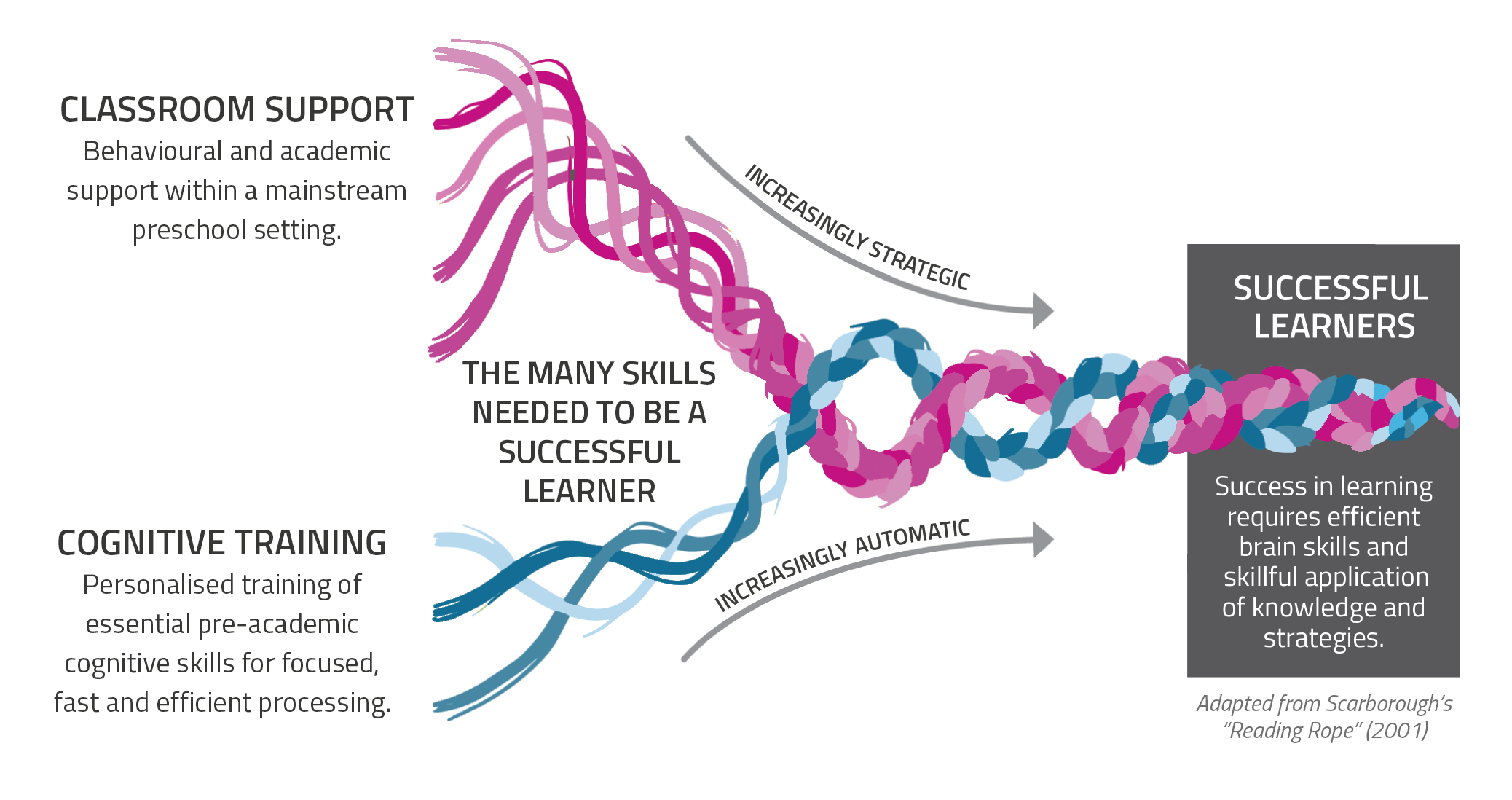
COGNITIVE SKILLS – THE “BRAIN PILLARS” OF LEARNING
Developmental delays and learning weaknesses in children result from deficiencies in cognitive skills. In order to behave appropriately and learn effectively, children need strong body regulation, visual perception and auditory processing skills.
By strengthening these important cognitive skills, BrainFit® is able to improve the learning abilities of your child and close learning gaps.

Here are some examples of these important cognitive skills our programme strengthens:
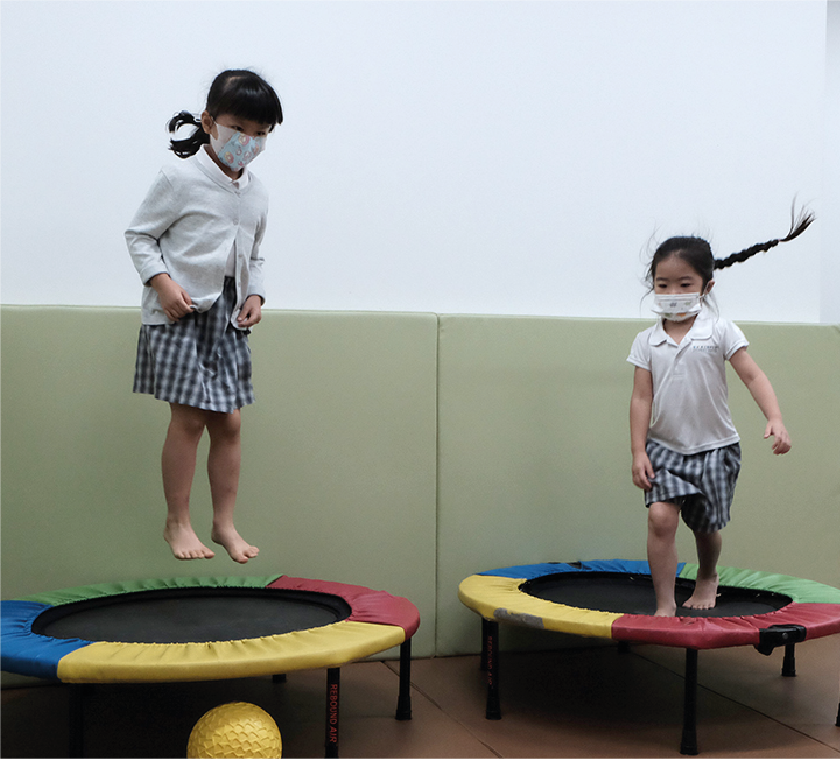
Sensory-Motor Processing
Children with developmental delays, behavioural challenges or learning weaknesses often have weak sensory integration or motor coordination. These can have significant impact on learning in various ways, from lack of bodily control (eg. hyperactivity or poor posture), poor fine motor or independence skills to short attention and focus.
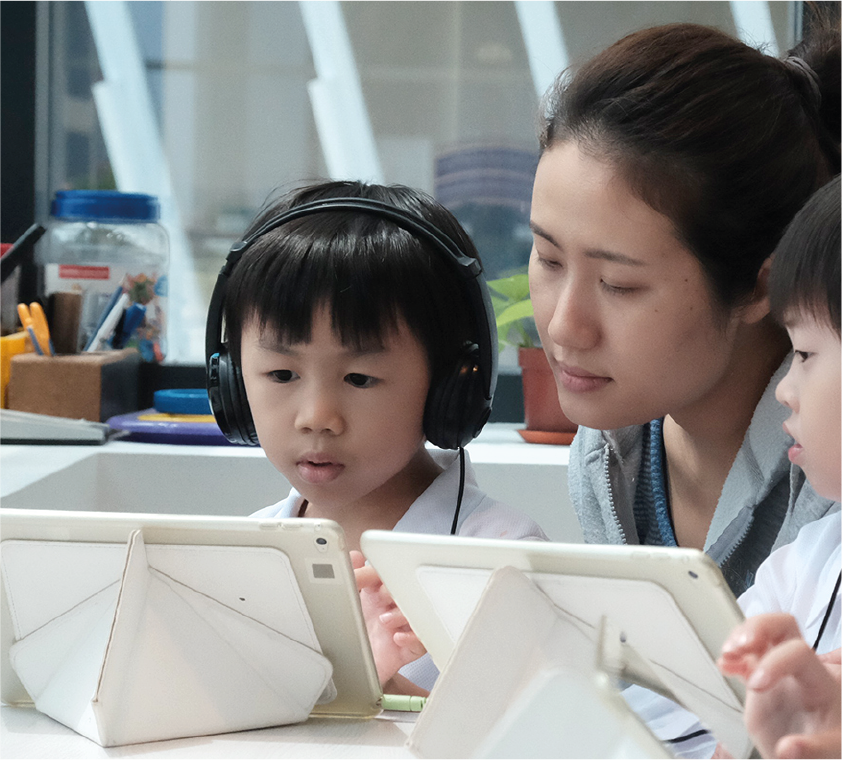
Rapid Auditory Processing
The ability to rapidly process sounds is critical for the development of listening, language and communication skills. Children with delayed language development are often weak in rapid auditory processing. While they may develop language over time, unresolved auditory processing weaknesses often lead to reading and comprehension challenges later in school.
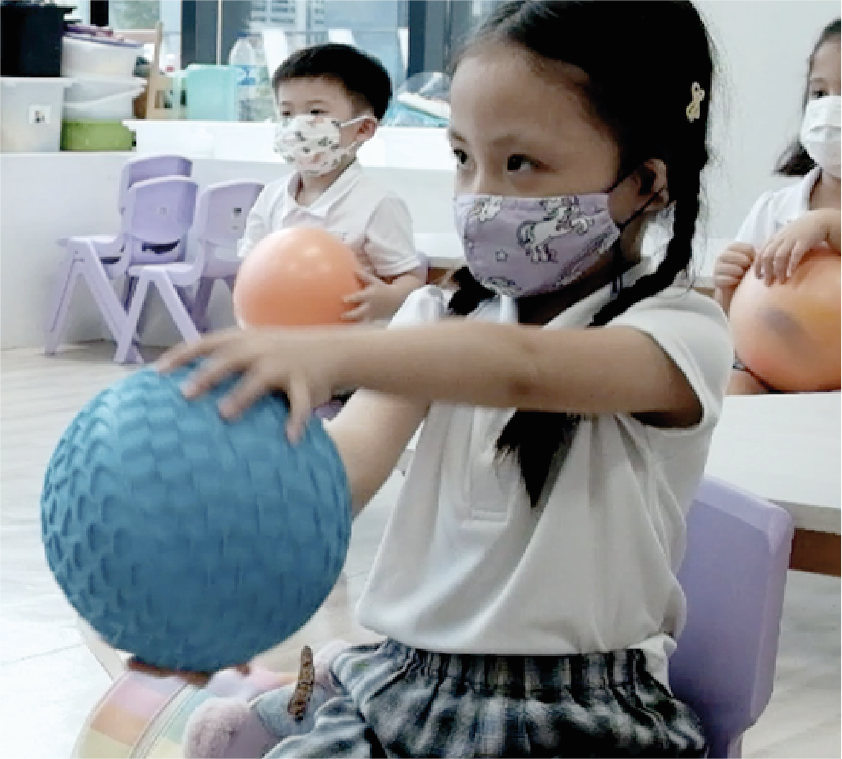
Eye Tracking Speed & Accuracy
The ability to direct your eyes and gaze quickly and accurately is critical for many important learning functions including paying attention, reading, paper-work activities and social interactions. Improving eye control and visual tracking can help children to stay on task longer, support social skills and classroom activities like reading, writing and copying.
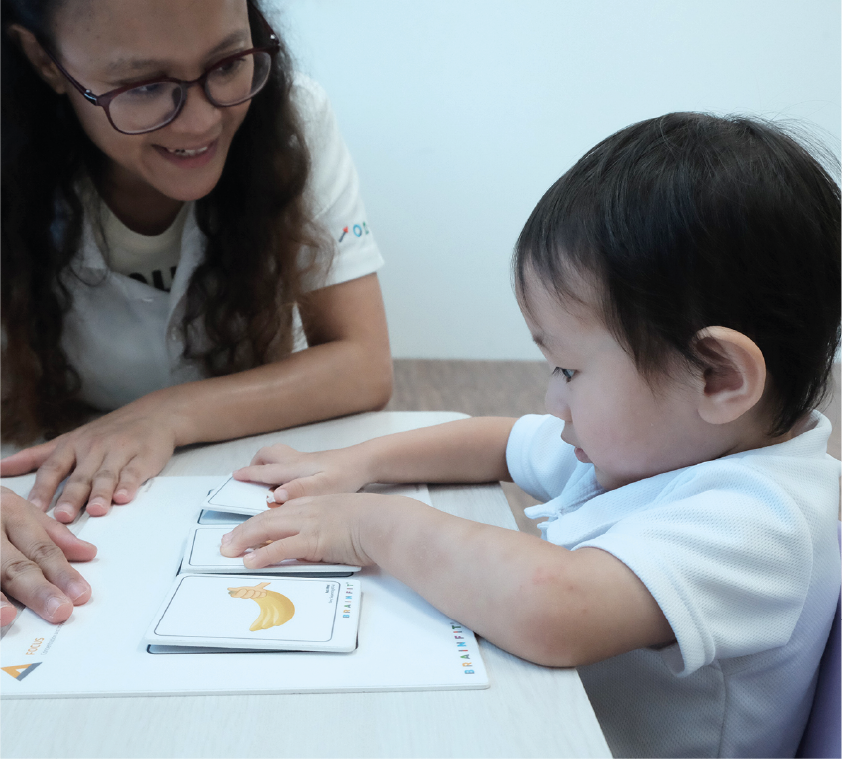
Visual/ Auditory Working Memory
Children with developmental and learning delays may sometimes demonstrate strengths in rote memorization. They may be able to learn the alphabets, numerals and even common sight words. However, their working memory is often weak, leading to difficulties in comprehension, grasping of new concepts and applying knowledge to solve problems.
PROVISION OF CLASSROOM SUPPORT FOR FULL INTEGRATION
In the second component of BrainFit’s School Readiness Programme, children are integrated in a fully mainstream classroom among peers of the same age. Depending on the needs of each child, these strategies or others may be applied:
